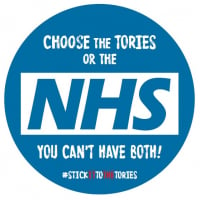We’d like to remind Forumites to please avoid political debate on the Forum.
This is to keep it a safe and useful space for MoneySaving discussions. Threads that are – or become – political in nature may be removed in line with the Forum’s rules. Thank you for your understanding.
📨 Have you signed up to the Forum's new Email Digest yet? Get a selection of trending threads sent straight to your inbox daily, weekly or monthly!
MSE News: NS&I inflation-beating savings to return
Comments
-
Sceptic001 wrote: »People are so used to "catches" in other savings accounts that they assume that this product, which looks too good to be true compared to the competition, has a hidden catch. In fact it doesn't, but there is no harm in making sure!
You're quite right, there is no harm in asking. I was merely trying to cut through the reams of detailed RPI comments to explain what I see as the underlying reasons to make any investment and why this fits the bill.
I did say, "well intentioned".
PR0 -
Pinner_Ram wrote: »I believe index linked savings certificates therefore have a place in all investment portfolios, in mine they account for about 12% of the total.
Spooky - this one and the previous issue make up 12% of my portfolio ...
NSI I-L 12%
Cash ISA 30% (fixed rate)
Share ISA 38% (self select, 24 individual HYP shares not funds)
Other Cash 20% (15% fixed rate bonds and 5% instant access)0 -
There is a good explanation of how it is calculated and Q&A here
http://www.thisismoney.co.uk/savings-and-banking/article.html?in_article_id=533335&in_page_id=7How is the interest calculated?The interest you earn on your savings is calculated using the annual rate of inflation with an average of 0.5 percentage points added on (the exact fixed rate alters slightly every year, see below).Interest is added each year on the anniversary of the account being opened.
On the date interest is added at the end of each year, NS&I takes the RPI rate from two months previously. For example, if you opened the bond on 12 May 2011, you get interest added on 12 May 2012, but the RPI rate used is from March 2012.
0 -
Has anyone considered that if inflation falls which it could very well do that these are actually a terrible investment?
I have some that I bought in Jan 2010 so I am pleased as punch but the fact that some people are considering putting ALL their savings into these to me smacks of lunacy.0 -
Has anyone considered that if inflation falls which it could very well do that these are actually a terrible investment?
I have some that I bought in Jan 2010 so I am pleased as punch but the fact that some people are considering putting ALL their savings into these to me smacks of lunacy.
The RPI could fall, but that seems unlikely for the foreseeable future.
However, if it does, this should reassure you:
We calculate the index-linking by using the RPI figures that apply to your Certificate at the start and end of each year of investment (not the monthly changes in between). If the index-linking is positive – ie if the RPI end level is higher than the RPI start level – then we add it to your investment. If the index-linking is negative (known as ‘deflation’) you won’t receive any index-linking. But don’t worry, we won’t reduce the value of your investment.0 -
Has anyone considered that if inflation falls which it could very well do that these are actually a terrible investment?
I have some that I bought in Jan 2010 so I am pleased as punch but the fact that some people are considering putting ALL their savings into these to me smacks of lunacy.
The rate of inflation will probably fall but I doubt we will see a sustained period of deflation.
edit: The BoE CPI target is legally mandated to be +2% and it would actively intervene to discourage deflation, and it's consequences should it happen, which seems remotely unlikley.
Noone should put all their eggs in one basket but IMHO for many, especially higher rate tax payers, these are a no brainer rather than lunacy, given the current inflationary climate and the 12 month and a day get out clause of at least some tax-free return.If the ball had gone in the net it would have been a goal.If my Auntie had been a man she'd have been my Uncle.0 -
Has anyone considered that if inflation falls which it could very well do that these are actually a terrible investment?
Yes but surely it depends on what your goals are doesn't it.
I have money I'm stoozing at 0.99% so I only need to beat that.
I'd like it tax free and all ISAs are full.
Do you have a better suggestion?
I would have to pay 40% tax on a savings account.
I genuinely would be interested in any other suggestions.
But the point remains - it depends on your goals.0 -
If they RPI is negative......the value of the investment won't be reduced. That is good. Do you also lose the .5% interest rate as well. I suppose so if RPI is negative.0
-
I'm sure I read that you still get the 0.5% (0.25% if cashing in after 1 year - then rising up to 0.5% over time) even if the change in RPI is negative0
This discussion has been closed.
Confirm your email address to Create Threads and Reply

Categories
- All Categories
- 352.8K Banking & Borrowing
- 253.8K Reduce Debt & Boost Income
- 454.7K Spending & Discounts
- 245.9K Work, Benefits & Business
- 601.9K Mortgages, Homes & Bills
- 177.7K Life & Family
- 259.8K Travel & Transport
- 1.5M Hobbies & Leisure
- 16K Discuss & Feedback
- 37.7K Read-Only Boards





